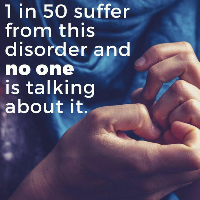what is it?
OCD is a familiar disorder in which someone has the same thoughts about something ( Obsession) and the constant urge or behaviour taken to maintain or satisfy those thoughts ( Compulsion). This disorder can be chronic and last for a long time.
Different types of OCD
More types of OCD may still be undiscovered and uncategorised for years. However, specialists group cases of OCD types into six separate categories:
1. Checking
2. Contamination
3. Mental contamination
4. Hoarding
5. Ruminations
6. Intrusive thoughts.
what causes OCD?
Main three risk factors that can cause OCD
1. Genetics: People with 1st-degree relatives who acquired OCD as a child or teen, significantly higher risk of developing OCD.
2. Brain Structure: Research suggests that specific areas of the brain can be identified as being affected.
3. Environment: Experiencing physical, sexual or emotional abuse at a young age.
Early signs your child might suffer from childhood OCD
Children don't always know how to express that they are struggling and obsessive-compulsive behaviour can go unnoticed by parents for years. Look for these warning signs so you can intervene if necessary, and get your child the support they need. Children with OCD often :
1. Have trouble concentrating on school work.
2. Struggle to enjoy activities they should enjoy.
3. Feel and act irritable, upset, sad or anxious.
4. Seem unsure of whether things are ok at residence, at school etc.
5. Take much too long to do everyday tasks, like getting dressed, organizing a backpack, completing homework or taking a shower.
6. Get upset and lose their temper if they can't make something perfect if something is out of place.
7. Insist that a parent say or do something in a very specific way.


